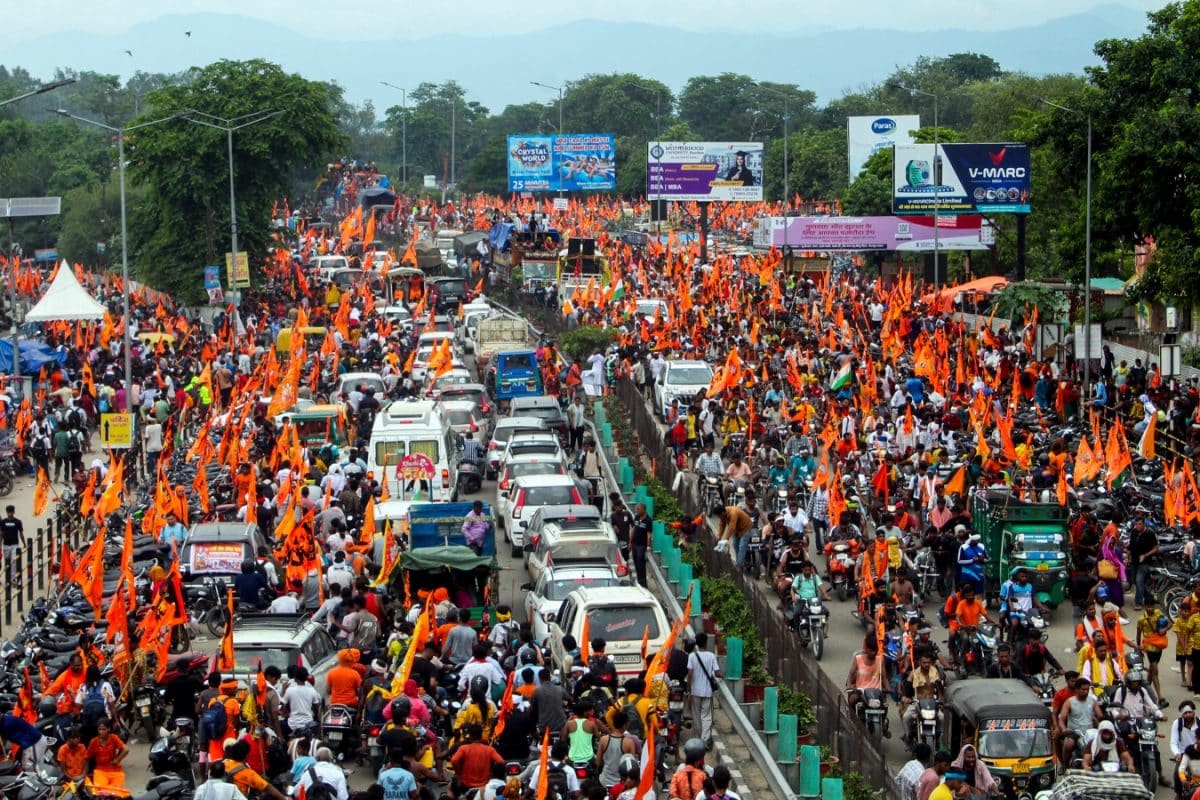

The annual Kanwar Yatra has once again triggered chaos on the streets of Delhi, with reports of pilgrims flouting rules and causing traffic disruptions. While the Delhi Traffic Police have deployed over 1,000 personnel to manage the situation, residents allege inaction against unruly behavior.
The Kanwar Yatra, which is nearing its culmination on Sawan Shivratri, has witnessed a higher influx of pilgrims this year compared to previous years. This surge has led to massive traffic snarls across the city, with commuters facing difficulties in several areas. The Delhi Traffic Police had issued advisories detailing routes for the Kanwar pilgrims and outlining traffic restrictions. However, the situation on the ground appears to be challenging, with reports of কানওয়ারিয়াস disrupting traffic flow and parking vehicles in no-parking zones.
Residents have voiced concerns over noise pollution, with loudspeakers allegedly violating sound pollution norms, sometimes late into the night. Some residents have also reported feeling unsafe, with instances of Kanwariyas smoking in public parks and making them feel uncomfortable. Sporadic incidents of violence involving Kanwariyas have also been reported. For instance, a cab driver's car mirror was allegedly broken by a group of Kanwariyas after his car accidentally touched one of them. In another incident, a case was registered against Kanwar pilgrims for allegedly attacking a 29-year-old over a parking issue.
While the police claim to have attended to around 250 complaints in a span of six days, residents allege that no FIRs have been registered against Kanwariyas for violating noise pollution or traffic rules. Some residents have reported that police personnel were present at the sites of violations but took little action, only requesting the Kanwariyas to maintain order. Reportedly, the police have been instructed by senior officials to not take strict action against the Kanwariyas.
The Delhi Police has received over 350 calls related to noise and traffic disturbances in the last five days. Complaints include traffic disruptions caused by Kanwar processions, loud DJ music being played on trucks, and groups halting on main roads for rest. To manage the situation, additional personnel have been deployed in sensitive areas and at major traffic intersections. Restrictions have also been imposed on the movement of buses and commercial vehicles in certain areas.
The Kanwar Yatra is an annual pilgrimage where devotees of Lord Shiva, known as Kanwariyas, travel to Haridwar and other places to collect holy water from the Ganga River. They then carry this water back to their hometowns to offer it at Shiva temples. The pilgrimage often involves walking long distances, and Kanwariyas are often seen traveling in groups, chanting and singing religious songs. While the Yatra is considered an important religious event, it often poses challenges for authorities in managing traffic and ensuring public order.
This year, the Ghaziabad administration set up its first women-only Kanwar camp in Modinagar, which can host around 20 women. However, concerns remain about the adequacy of facilities for women, especially regarding hygiene and safety. A recent incident in Uttar Pradesh highlights the dangers associated with the Yatra. A Kanwariya from Delhi died in a road accident near Khatauli, and 68 others were injured in separate incidents across Muzaffarnagar.